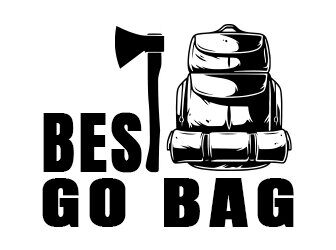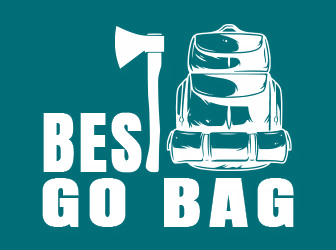Well, look at that. Something has finally surpassed the pandemic in terms of news coverage.
Every time I turn on the TV or visit a news website these days, I see the same story. Supply-chain delays are slowing down deliveries. Of what? Everything. Even the U.S. commerce secretary says, “There’s no denying that it’s a problem.”
It’s been one warning after another in the headlines. Including, “Grocery Stores Could Face Supply Shortages Ahead of Holidays.” Many companies have told grocers they’ll be short on supply.
And, “Global Supply-Chain Problems Escalate.” The Wall Street Journal reports that supply-chain bottlenecks are feeding on one another.
Plus, “Supply Chain Havoc Is Getting Worse.” Manufacturers, retailers and economic analysts around the world predict the problem will get worse before it gets better. Some say we won’t be back to normal until mid-2022.
As well as, “The World Is Still Short of Everything. Get Used to It.” The New York Times says the world is gaining a lesson in the ripple effects of disruption.
Many Issues Causing Problems
It seems like no matter what we order these days, delivery times are going from slow to slower.
So, what’s going on? What’s causing us to wait for deliveries that in the recent past came much faster?
There’s no simple answer because there are many problems. Especially
labor, commodity and transportation issues.
They’re being caused by shortages of components, rising energy and materials prices, the pandemic, and more
‘A Maritime Parking Lot’
COVID-19 has caused some factories and container ports to temporarily shut down.
As demand outstrips supply, manufacturers are in bidding wars for space on ships. And that has hiked shipping costs. Exporters are raising prices or canceling shipments.
As of this writing, there were some 70 ships waiting for berths in ports off the Southern California coast. The New Yorker called it “a maritime parking lot.”
Why is there port congestion and container shipping capacity shortage? Because there are not enough dockworkers to unload goods. And not enough truckers to begin the distribution process.
Rising prices and product shortages are also factoring in. For example, the cost of magnets used in Rubik’s Cube toy puzzles has jumped 50 percent since March.
Variety Will Be Lacking
Patrick Penfield is a supply chain professor at Syracuse University. He said Americans are not going to see the variety of products they’re used to seeing this holiday season.
The growing list of shortages is making it difficult for retailers to find enough products to stock their shelves. For consumers, that means delays and higher prices.
Items that are normally big sellers during the holidays – such as electronic gadgets – could be in short supply. That’s because they contain many different components. Some of which are hard to find right now.
Many of those components are made in Asian countries where the pandemic has closed factories. And in China, planned power outages to curb energy usage are complicating electronics production.
Food Is One of the Casualties
Of course, electronic gadgets are just one of the products that have been slowed on their path to market.
There is also a shortage of petrochemicals. They’re used in the production of food packaging, paint and adhesives. One of those chemicals is polyvinyl chloride. It’s used in the production of credit cards, medical devices, cars and other items.
Additional commodities expected to be in short supply for the foreseeable future include clothes and furniture. Plus home appliances, lumber and pet food.
A variety of food items are already being affected. Earlier this month, 15 percent of frozen foods were out of stock. As well as 18 percent of beverages. And 16 percent of snacks.
It’s a Domino Effect
New York Times reporters write, “Delays, product shortages and rising costs continue to bedevil businesses large and small.
“And consumers are confronted with an experience once rare in modern times: no stock available, and no idea when it will come in.”
Toyota is slashing its global production of new cars by 40 percent. Due to a shortage of computer chips. Construction companies can’t get the materials they need to build.
And it’s all connected globally. If a shipping container can’t be unloaded in Southern California, then a container of soybeans can’t be loaded in Iowa. That means buyers in Indonesia have to wait. As a result, there will be an animal feed shortage in Southeast Asia.
We’re Working Diligently
I’d love to be able to tell you that supply chain problems are not affecting us at 4Patriots. Unfortunately, that would not be true.
We’re at the mercy of these issues like every other company is. It’s possible you recently received a shipment from us that was delayed. Or perhaps you’re waiting on one right now. Either way, I sincerely apologize.
You can rest assured we are doing everything within our power to get your shipment to you as soon as humanly possible. We’ve been hiring more staff, adding shifts, working overtime and exploring other delivery options.
While we want you to know this is a global problem, we’re not going to hide behind that. We will do whatever it takes to make it right. We owe you that.
Preparedness Still the Best Tactic
Obviously the world is not working the way it should right now. So, what does that mean for us in America?
For one thing, it means we should expect delays and higher prices. We should anticipate our needs and place orders sooner than we normally would.
It also means determining what our necessities are – food, water, backup power sources, etc. – and stock up now rather than wait until supplies get too low.
Supply chain disruptions are yet another problem we will get through eventually. For now, it’s a challenge.
Be smart, be safe and be prepared. It’s a strategy that’s gotten us through tough times before. And it will work again.


